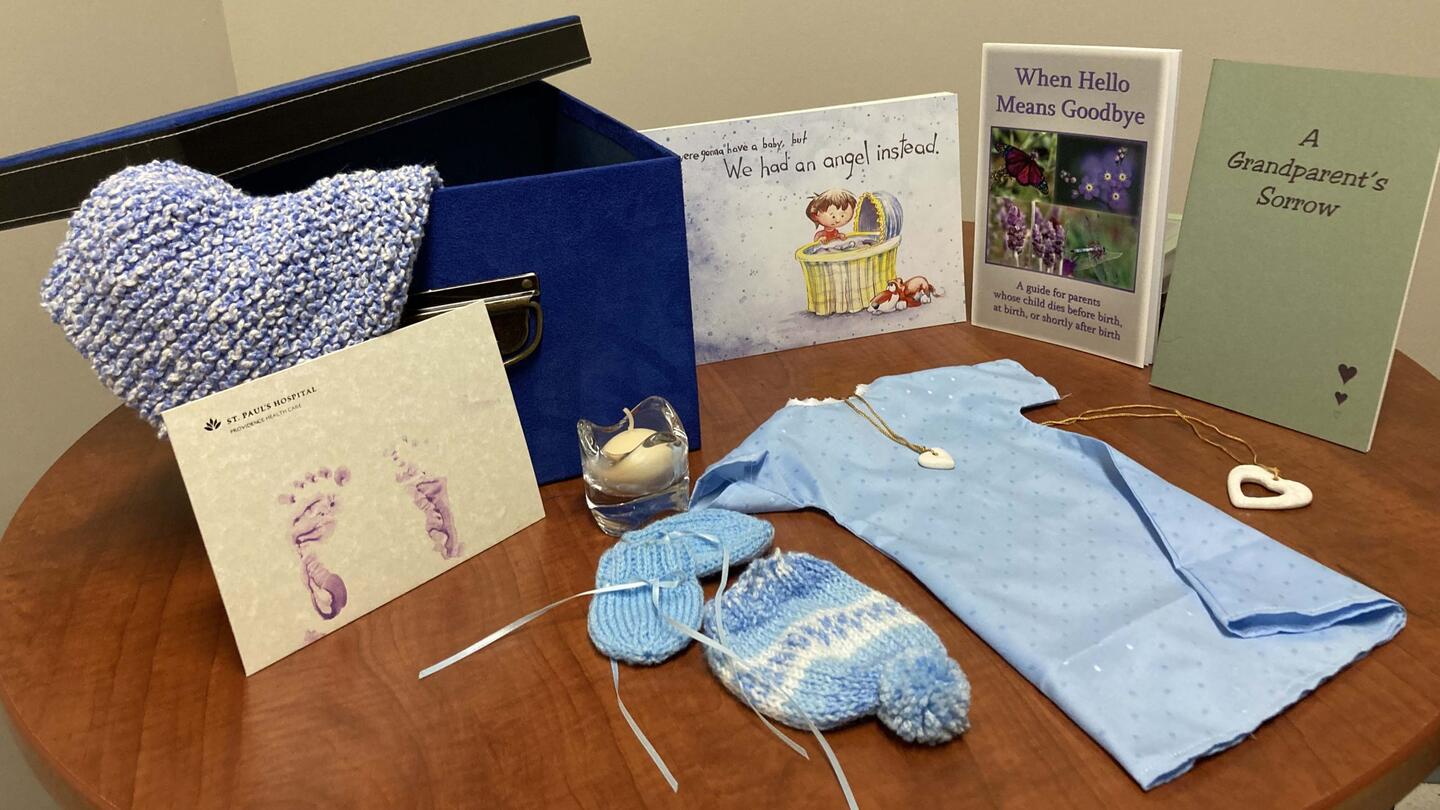Bereavement supports
As part of our perinatal loss program, we provide initial grief counselling to families and help set up a grief support program for them once they go home.
We are deeply sorry for your loss. Experiencing the loss of a baby at any stage of pregnancy or following birth is life changing. If the worst happens, we are here to support you and your family in your journey of grief.
We provide initial grief counselling to families and help connect them with grief support groups, individual counselling and virtual support services. Families also have access to our Indigenous Wellness Team and our Spiritual Care Program.
Families can spend as much time as they wish with their baby. While in the hospital a Cuddle Cot bassinet is available for grieving families who wish to spend time with their baby. When the family is ready to go home, we will help navigate the details of cultural ceremony and funeral arrangements.

Resources
If you or someone you know has lost a baby, the following resources may be helpful.
Lactation after Loss
When your baby dies your body still goes on to make milk. Your milk will most likely come in once you have left the hospital, around day 3-5 after birth. The milk making process started during your pregnancy and the birth signaled your body to make milk. Some bereaved parents find that donating their baby’s milk to a milk bank helps their grieving process. The provincial milk bank is located at BC Women’s Hospital in Vancouver. For more information, visit BC Women's Milk Bank.
When your milk comes in your breasts will feel very full, and the pressure may become uncomfortable. Some bereaved parents want to dry up their milk as quickly as possible, while others find it a comforting reminder of the connection to their baby to make and express milk. There is no right or wrong way to feel and it is a personal choice whether you want to donate or to stop making milk completely.
If you want to stop producing milk
When your baby has been delivered and you want to stop your milk supply, the process should be comfortable and done over a period of time.
- Use a breast pump or hand expression to express a small amount of milk to relieve the pressure.
- Use breast pads to absorb any leaking milk.
- Wear a comfortable soft supportive bra.
- Use a cool compress on the breasts for comfort and to help decrease swelling.
- Take a pain reliever like ibuprofen or acetaminophen for breast discomfort.
Binding your breasts is no longer recommended.
There are prescription medications available to help stop breast milk production that can be used in the first few days after birth. Talk to your health care provider about using these medications to stop milk production and work together to make a plan that is best for you.
Last reviewed: March 5, 2025